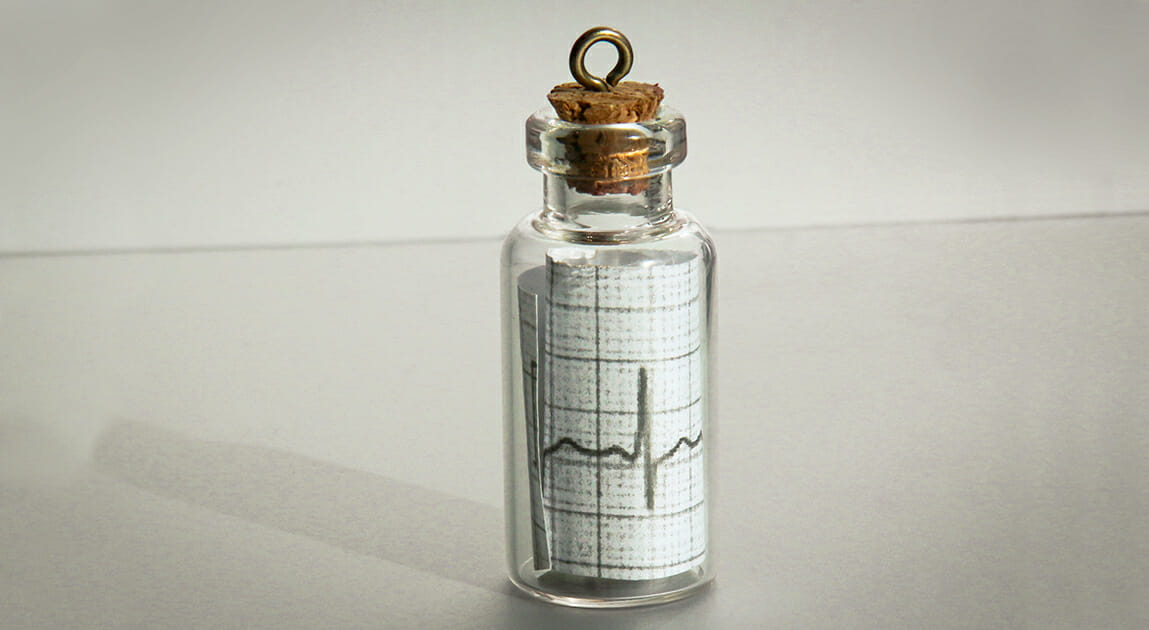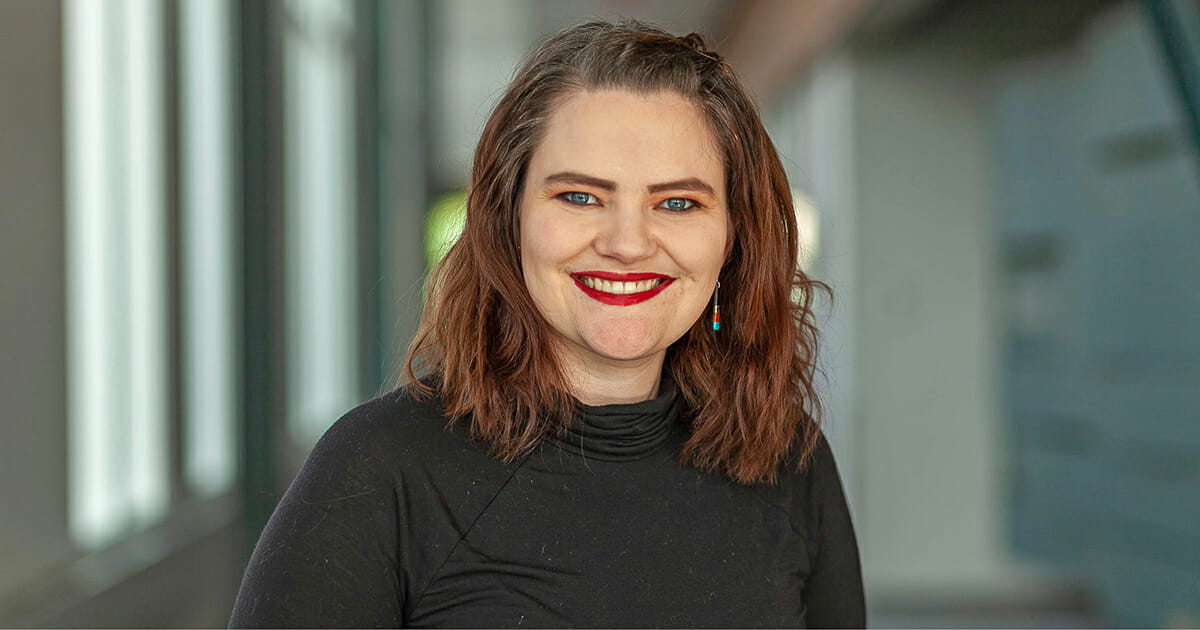Heartbeat in a Bottle Honors Loved Ones After Donation
These small tokens we give have become a tangible way for us to acknowledge and honor the lives of our donors, in the midst of their deaths.

“How will I get home? What do I do with his car?”
I stood in my surgical scrubs in a dim, excruciatingly warm hospital room in the ICU of a major trauma center, looking into the strangely blank face of a woman I barely knew. It was her boyfriend lying supine on the hospital bed in the center of the room. He was her best friend, the man she’d waited 42 years to meet. He loved his dogs, brewed his own beer, hated smartphones, and could fix anything broken. He had, for unknown and incomprehensible reasons, collapsed in the parking ramp of the hospital, a vessel in his brain burst, causing brain death. But somehow, in the midst of this unimaginable grief, this woman had asked his nurse if he could help someone by donating his organs. So we came, with our rolling suitcase of supplies and we started our medical evaluation, spent hours in his room, ordering medications, exams, labs, checking tasks off a list while she watched. We sat with her, we listened to her stories about him, gave her tissues when she cried and water so she wouldn’t get dehydrated. We told her to sleep, reminded her to eat, and reassured her we would stay with him while she went home, but she never left his side. When she wasn’t crying, she was telling anyone who would listen how proud she was that he was going to save lives.
“This was the part of our work that carried me through the most difficult cases, watching people in the worst moments of their lives display the best parts of humanity. My colleague Mary, a family support coordinator, calls it “intimate heroism” – a phrase that I’ve grown to love.”
So here I was, telling her we had found matches, that people were getting phone calls telling them that their lives were about to change, and we would be going down to surgery soon. But I was also telling her she had to say goodbye, not to him exactly – she had accepted that he was no longer alive but to the hands she had held, and the way he smelled, and the sound of his heart beating when she laid her head on his chest. There are so many small things to love about a person, and I was asking her to say goodbye to all of them for the last time. I had done this a hundred times, and each person has a different reaction, so hearing her question, I went into problem-solver mode. I started to talk about social work, and cabs, and used the word “resources” I don’t know how many times. She shook her head and said she knew how to drive, but asked how long she could stay at the hospital before she was forced to leave. She couldn’t bring herself to move his car. I didn’t understand until she explained that he had driven to the hospital, and the seat was still in the position he had left it in. He was at least a foot taller than her, and when she left, she’d have to move the seat to reach the gas pedal. She couldn’t bear the thought that the seat would never be in that position ever again.
These were the moments as a donation coordinator in which I felt the most helpless. How do you comfort someone looking at a future with a million reminders of this death?
“I wanted to give her something tangible to take with her, something physical of him for her to hold; everything I said sounded thin and weak. I held her hand and told her I was so sorry, that she could stay until she was ready to leave.”
Then, a few cases later, a hospital coordinator named Katelyn printed some heartbeat tracings from a patient’s monitor, dropped off a few glass bottles she’d bought at Michael’s on the unit, and asked me to make some of these things called “Heartbeats in a Bottle” – I loved everything about them.
“There is something so vital, so viscerally familiar, about a heartbeat. It feels like it contains more of a person’s being than any other part of them.”
When I gave them to the donor family, just before going to surgery, they were so appreciative and touched by the gesture they cried with something other than crushing grief for the first time in days. As I sat in the plane on the way home from that case, I ordered 200 bottles on Amazon.
I started giving them to every family, even the ones that said “No” to donation. It was a way to show them we were there for more than just a transaction, that we didn’t just want something from them, that their loved one wasn’t just a body with working parts, but a person who had been alive and loved. I started giving the bottles to other coordinators, and pretty soon my order of 200 bottles was gone. By then, it was clear that these heartbeats in a bottle could be gifted from our team to our families on a larger scale. Nearly all patients in the ICU get an EKG or are on heart monitoring, making it easy to print a tracing and upload it into their electronic donor chart. Now, each donor family receives up to 15 heartbeats in a bottle, and if they request more, we print the strip for them to take with them and make at home. Families have made them into jewelry, given them at funerals, placed them inside stuffed animals for children; they place them on mantle pieces, on their nightstands, or carry them with them everywhere they go. I was even able to present a father with his daughter’s heartbeat 18 years after she died. These small tokens we give have become a tangible way for us to acknowledge and honor the lives of our donors, in the midst of their deaths.

Kristin Clark is a Clinical Resource Supervisor – responsible for evaluating potential organ donors and serving as a resource for LifeSource staff on clinical and donation-related processes (similar to a Charge Nurse on a hospital unit). Previous to her current role, she was a Donation Coordinator and worked directly with donors and their families.
 Skip to main content
Skip to main content
